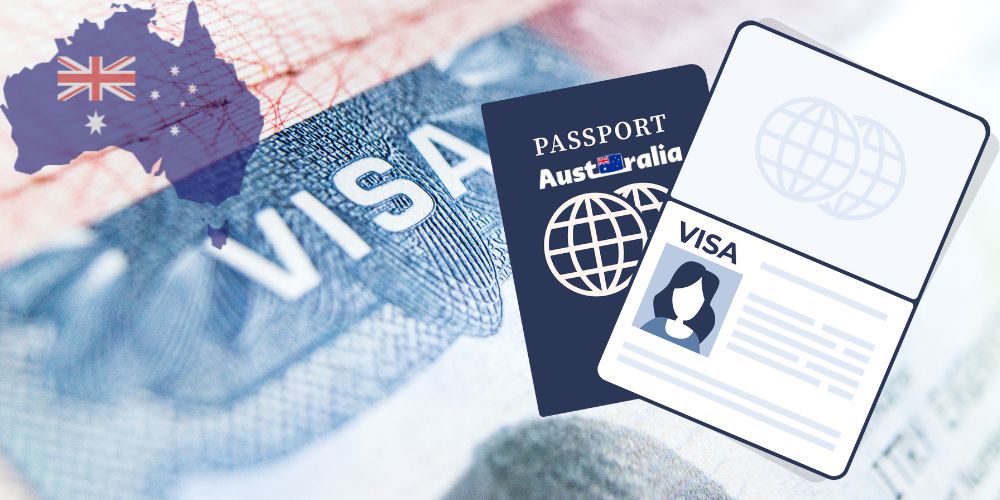
Migration Strategy: Proposed Changes on Immigration from 2024
PROPOSED CHANGES ON IMMIGRATION: STUDY ABROAD
English proficiency stands as a pivotal factor in determining the level of success for international students. Minister for Home Affairs, Ms. Clare O’Neil, stated: ‘We are raising standards for international students and ensuring that they come to Australia primarily for educational purposes rather than employment.’
There will be higher English proficiency requirements for students wishing to study in Australia, the government announced, aiming to ‘enhance student quality, the educational experience in Australia, create optimal environments, and reduce the risk of exploitation in the workplace.

According to the federal government’s migration assessment, the minimum English language requirements for student visas and postgraduate visas will be increased in 2024. Here is an overview of the changes in English language requirements:
For Student Visas:
- The IELTS requirement for student visas will be increased from 5.5 to 6.0.
- If students undertake a pre-course English program, the IELTS requirement will increase from 4.5 to 5.0.
- For pathway programs (Foundation) or other programs combined with English studies: the IELTS requirement will be 5.5.
(or equivalent)
For Temporary Graduate Visas (TGV): The IELTS requirement will be increased from 6.0 to 6.5.
A Genuine Student test (GST) will be implemented (replacing the Genuine Temporary Entrant – GTE) to select genuine students with a genuine purpose of studying. Evaluation factors include:
- Student’s circumstances: Their academic and employment background is relevant and suitable for future career opportunities.
- School of enrolment: Each school will be assessed based on risk levels. Schools with lower risk levels will result in faster processing of student visa applications.

PROPOSED CHANGES ON IMMIGRATION: DATE & TITLE
From TGV to ‘Post-higher education Work’ and ‘Post-Vocational Education Work’. The timeline changes are as follows:
| Qualification Level | Current Policy | Proposed Policy |
| Bachelor’s Degree | 2 years | 2 years |
| Master’s Degree | 3 years | 2 years |
| Research Master’s Degree | 3 years | 3 years |
| PhD | 4 years | 3 years |
| Extension of Post-graduate Visa | ||
| If studying in regional areas | +1-2 years (depending on the region) | + 1-2 years (depending on the region) |
| If studying in a field of critical importance | + 2 years | |
- Consider reapplying for a student visa after having a post-graduation work visa: Will consider the authenticity of students holding post-graduation visas who want to reapply for a student visa.
- Changing the age limit for applying for a graduate visa: From 50 years old to 35 years old (there are many proposals to consider increasing the age beyond 35).
The pathway to post-graduate visas will be made clearer:
- Experience requirements for visas such as Temporary Skills Shortage visas and Skills in Demand visas will be amended to provide workers with opportunities to transition to higher-skilled visa categories.
- Reforming the points-based assessment will also facilitate post-graduate students to pursue high-skilled vocational roles, offering a quicker pathway to permanent residency.
Implementation timeline
| Policy Implementation | Timeframe |
| Tighter monitoring and goal-setting for student visa applications from high-risk institutions. | List of institutions categorized by risk levels to be published by the end of 2023. Introduction of the Genuine Student test and criteria for assessing genuine students to be applied by early 2024. |
| Department of Home Affairs to enhance scrutiny of student visa integrity to mitigate misuse of these visas | End of 2023 |
| Priority processing of visas for applications in regional areas. | End of 2023 |
| Changes to English language requirements for student visas and temporary graduate visas. | End of 2024 |
| Enhanced requirements for educational institutions. | 2024 |
| Enhancement and streamlining of post-graduate visas. | Mid-2024 |
| Restricting onshore visa hopping to maintain the integrity of the system. | Early to mid-2024 |
| Guidance on supporting international students in recognizing their potential. | Early to mid-2024 |
PROPOSED CHANGES ON IMMIGRATION: SKILLED MIGRATION
- Skills in Demand Visa, Visa validity period: 4 years.
- Simplification of visa application: The Visa application process is streamlined, allowing employers to quickly recruit migrant workers.
- Extended usage fees: The government will consider allowing employers to pay extended usage fees to facilitate easier recruitment of migrants.
Ensure a pathway to permanent residency for skilled visa holders:
Time spent working with any approved employer will count towards the residency requirement.
Skilled migrants will also be allowed to apply for permanent residency through independent nomination pathways.
- Additional time to find employment: If the employment relationship with the sponsor ends, visa holders will have 180 days to find a new sponsor and can work during this time.
- Public disclosure of approved sponsors: Publicly disclose a list of government-approved sponsors, including the number of migrants sponsored and their occupations, to assist migrants seeking new sponsors.
Developing a pathway for core skills
- Targeted towards specific labor needs.
- Occupations listed in the Core Skills Occupation List (CSOL), are identified by Jobs and Skills Australia as experiencing shortages.
- Market salary rate, with a minimum of AUD 70,000.
Implementation timeline
| Policy Implementation | Timeframe |
| Standardization of immigration point system. | Early 2024 |
| Discussion on regional immigration policies. | Early to mid-2024 |
| Enhancement of assessment and recognition of vocational skills. | Early to mid-2024 |
| Establishment of certification processes for employers. | Early to mid-2024 |
| Skills in Demand visa and pathway to permanent residency with employer register. | End of 2024 |
| Rollout of Specialist Skills and Core Skills pathways. | End of 2024 |
WHAT CURRENT AND FUTURE STUDENTS NEED TO PREPARE FOR WITH THE NEW POLICIES?
For current students, it is essential to establish goals:
- Completion of studies and return to Vietnam to gain experience: The new policies have minimal impact on this plan.
- Seeking opportunities to stay after completion of studies:
- Consider the appropriate timing to apply for a Temporary Graduate visa.
- Assess whether the field of study and current job align with the Core Skills Pathway or Skills in Demand list. Consider studying in a listed field if the current one is not included.
- Seek consultation with immigration lawyers like A2Zi to understand the necessary preparations to enhance residency prospects and suitable visa options.
- Research the requirements of employers listed for sponsorship.

For future students:
- Improve English proficiency to better integrate into the new environment and prepare for visa applications. Attend study abroad workshops to learn more about courses and institutions. Capture evidence of participation to support future visa applications.
- Encourage participation in short-term courses related to the intended field of study to gain insights into the industry and compare with programs in Australia.
- Encourage seeking work experience related to the intended field of study.
- Contact SET Education for advice on financial planning.
Submit applications today to meet admissions criteria while they are still “easier.” Leave your information in the chatbox or contact the hotline at 0403 518 718 for specific guidance!



